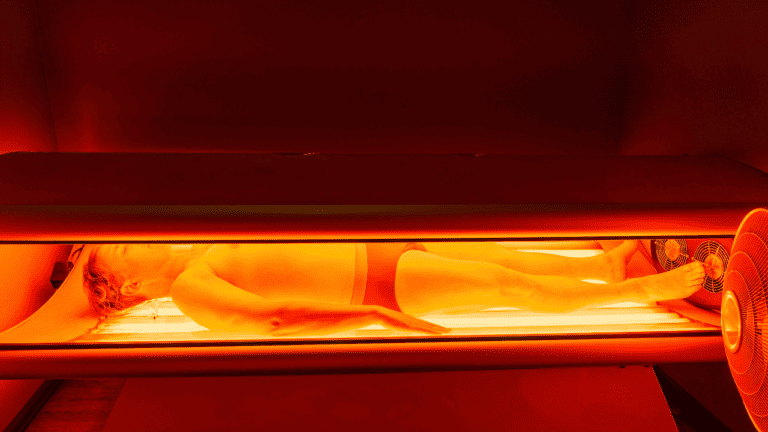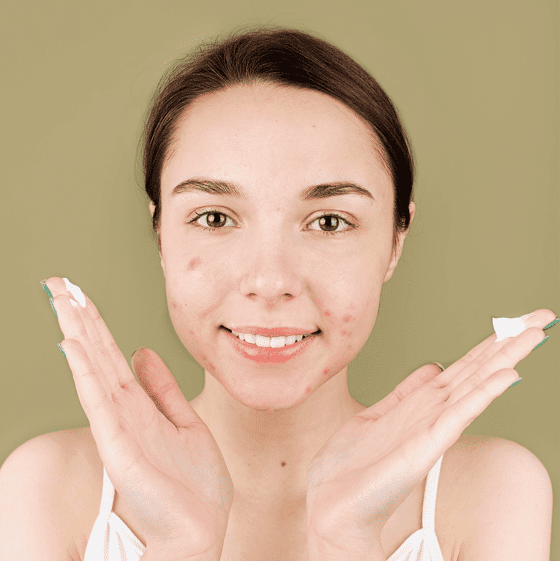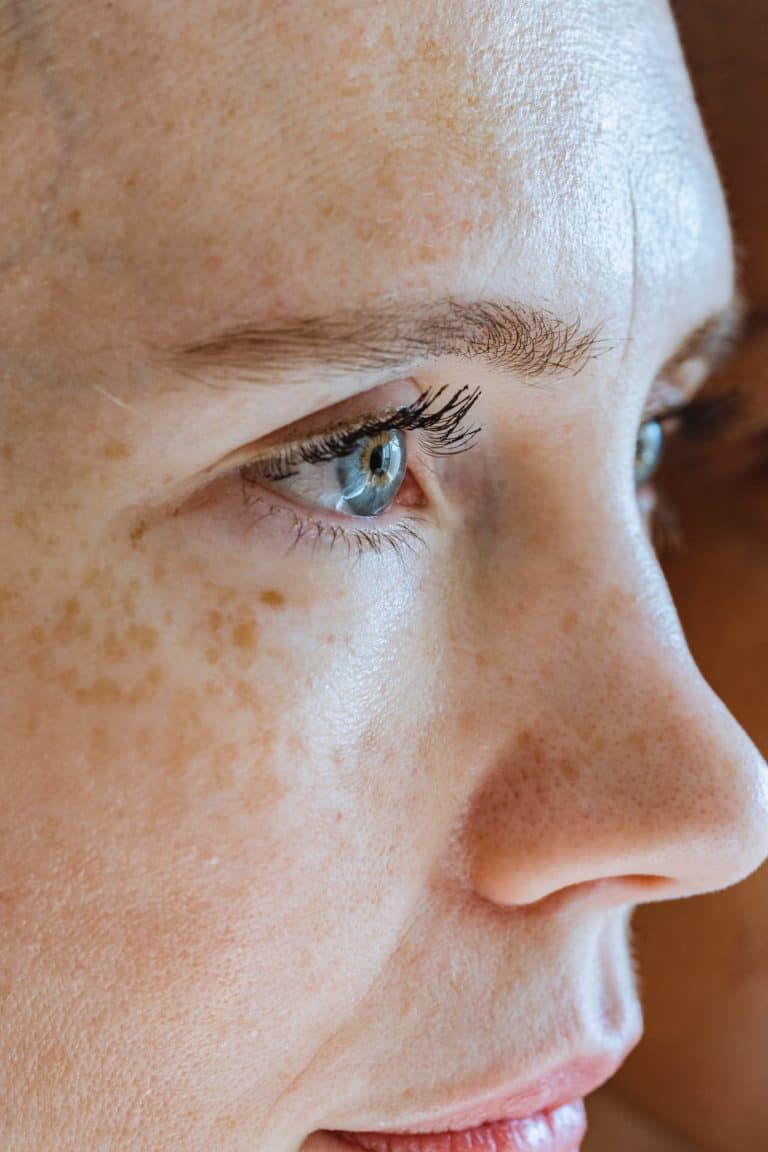Skincare is a vital part of everyday life for many people. It helps to keep the skin healthy and looking its best, and it can be an enjoyable and relaxing activity. However, some people are concerned that certain skincare products and ingredients could be harmful and even cause cancer. This has led to a growing interest in the link between skincare and cancer, and whether or not there is any truth to these claims.

Understanding Skin Cancer is crucial to understanding the potential risks associated with skincare. Skin Cancer is a type of cancer that develops in the skin cells and can be caused by a variety of factors, including exposure to the sun’s harmful UV rays, genetics, and lifestyle choices. While skincare products and ingredients may not be a direct cause of skin cancer, they may contribute to the risk of developing the disease. This article will explore the link between skincare and cancer, the potential risks associated with certain products and ingredients, and what steps can be taken to minimize these risks.
Key Takeaways
- Skincare products and ingredients may contribute to the risk of developing skin cancer.
- Understanding the potential risks associated with skincare is crucial to making informed choices.
- By following preventive measures and best practices, such as using sunscreen and avoiding certain ingredients, it is possible to minimize the risk of developing skin cancer.
Understanding Skin Cancer

Skin cancer is the most common type of cancer in the United States, accounting for about 1 in 5 cases of cancer. It occurs when the skin cells are damaged by ultraviolet (UV) radiation, which can come from the sun or from tanning beds. While skin cancer can usually be cured if caught early, it can be deadly if it spreads to other parts of the body.
Types of Skin Cancer
There are three main types of skin cancer: melanoma, basal cell carcinoma, and squamous cell carcinoma. Melanoma is the most dangerous type of skin cancer, as it can spread to other parts of the body quickly. Basal cell carcinoma is the most common type of skin cancer, but it is also the least dangerous. Squamous cell carcinoma is less common than basal cell carcinoma, but it can spread to other parts of the body if left untreated.
Risk Factors for Skin Cancer
There are several risk factors that can increase a person’s risk of developing skin cancer. The most significant risk factor is exposure to UV radiation, either from the sun or from tanning beds. Other risk factors include having fair skin, having a family history of skin cancer, having a weakened immune system, and having a history of sunburns or excessive sun exposure.
It is important to take steps to protect your skin from UV radiation, such as wearing protective clothing and using sunscreen with an SPF of at least 30. It is also important to avoid tanning beds, as they can increase your risk of developing skin cancer. By taking these precautions, you can reduce your risk of developing skin cancer and protect your skin from damage.
Skincare Products and Ingredients

Skincare products have gained immense popularity over the years, with people relying on them to keep their skin healthy and youthful. However, there is a growing concern that some ingredients in these products may be harmful and increase the risk of cancer. In this section, we will explore the most common ingredients in skincare products and their potential risks.
Common Ingredients in Skincare Products
Skincare products usually contain a combination of active and inactive ingredients. Active ingredients are those that provide the intended benefits, such as moisturizing, exfoliating, or protecting the skin from the sun. Inactive ingredients, on the other hand, are added to improve the texture, stability, and shelf life of the product.
Some of the most common active ingredients in skincare products include hyaluronic acid, retinol, vitamin C, and glycolic acid. These ingredients have been extensively studied and are generally considered safe for use in skincare products.
Controversial Ingredients and Their Risks
However, there are some controversial ingredients that have been linked to cancer and other health issues. These include parabens, phthalates, fragrance, preservatives, benzophenone, DEA, talcum powder, and petroleum jelly.
Parabens are a type of preservative commonly used in skincare products to prevent the growth of bacteria and mold. However, they have been found in breast cancer tumors, leading to concerns about their potential carcinogenic effects.
Phthalates are chemicals used to soften and increase the flexibility of plastics. They are also commonly used in fragrances and other cosmetic products. However, studies have linked phthalate exposure to breast cancer, reproductive problems, and developmental issues.
Fragrances are added to skincare products to improve their scent. However, they are often made up of dozens of chemicals, some of which are known to be toxic or carcinogenic.
Benzophenone is a chemical used to protect the skin from the sun’s harmful UV rays. However, it has been linked to hormone disruption and cancer.
DEA is a foaming agent used in skincare and personal care products. It has been linked to cancer and other health issues.
Talcum powder is a common ingredient in body powders, baby powders, and other skincare products. However, it has been linked to ovarian cancer when used in the genital area.
Petroleum jelly is a byproduct of petroleum refining and is often used in skincare products to moisturize and protect the skin. However, it has been linked to cancer and other health issues.
In conclusion, while many skincare products and ingredients are safe for use, there are some that may increase the risk of cancer and other health issues. It is important to read labels carefully and do research before using any skincare product.
Regulations and Safety Measures

Skincare products are regulated by various international and regional regulatory bodies to ensure that they are safe for use. These regulatory bodies set standards for the manufacturing, labeling, and marketing of skincare products to protect consumers from harmful substances and misleading claims.
International and Regional Regulatory Bodies
The International Agency for Research on Cancer (IARC) is an intergovernmental agency that conducts research on cancer and evaluates potential carcinogens. The IARC has classified some substances found in skincare products, such as coal tar and some metals, as carcinogenic to humans or possibly carcinogenic to humans.
In the European Union (EU), skincare products are regulated by the European Commission. The EU has banned or restricted the use of over 1,300 substances in cosmetics, including some that are potentially harmful. The UK has adopted many of these regulations, and they continue to apply after the UK’s departure from the EU.
Restricted and Banned Substances in Skincare
Some substances commonly found in skincare products are restricted or banned in certain regions. For example, hydroquinone, a skin-lightening ingredient, is banned in the EU and Japan due to its potential to cause cancer. Mercury, which is sometimes used in skin-lightening creams, is also banned in the EU.
Other substances, such as parabens, have been the subject of controversy. Parabens are preservatives commonly used in skincare products, but some studies have suggested that they may have estrogenic activity and could contribute to breast cancer. However, the evidence is inconclusive, and regulatory bodies have not banned the use of parabens.
Overall, regulatory bodies work to ensure that skincare products are safe for use. Consumers can further protect themselves by checking product labels for restricted or banned substances and avoiding products that contain potentially harmful ingredients.
The Link Between Skincare and Cancer

Skincare is a routine practice for many individuals, but concerns about the potential for skincare to cause cancer have been raised. While scientific evidence is not conclusive, there are factors that may influence the carcinogenic potential of skincare.
Scientific Studies and Evidence
Several epidemiologic studies have investigated the relationship between skincare product use and cancer risk. A prospective cohort study of Norwegian women found no association between skincare product use and breast cancer risk, but did find a positive association between use of hair dye and risk of breast cancer. Another prospective cohort study found no significant association between skincare product use and endometrial cancer risk. Case-control studies have also investigated the relationship between skincare product use and cancer risk, but the results have been inconsistent.
Some skincare products contain carcinogens, which are substances that can cause cancer. For example, some hair dyes contain ingredients that are classified as human carcinogens. However, the levels of carcinogens in skincare products are generally low and are not likely to cause cancer when used as directed.
Factors Influencing the Carcinogenic Potential of Skincare
The potential for skincare to cause cancer may be influenced by several factors, including the type of product, the frequency and duration of use, and individual susceptibility. Skincare products that contain endocrine disruptors, which are chemicals that can interfere with the body’s hormonal system, may be of particular concern.
Individual susceptibility to the carcinogenic effects of skincare products may be influenced by genetic factors, lifestyle factors, and other environmental exposures. For example, individuals who smoke or are exposed to other sources of environmental pollution may be at greater risk of developing cancer from skincare products.
In conclusion, while the evidence is not conclusive, concerns about the potential for skincare to cause cancer have been raised. The potential for skincare to cause cancer may be influenced by several factors, including the type of product, the frequency and duration of use, and individual susceptibility. It is important for individuals to be aware of the potential risks associated with skincare products and to use them as directed.
Preventive Measures and Best Practices
When it comes to skincare, there are certain preventive measures and best practices that can help reduce the risk of skin cancer. In this section, we will discuss some of these measures and practices.
Choosing Safer Skincare Options
One of the best ways to reduce the risk of skin cancer is to choose safer skincare options. This means avoiding products that contain harmful ingredients such as parabens, phthalates, and synthetic fragrances. Instead, opt for products that are made with natural and organic ingredients.
When choosing skincare products, it is also important to consider the brand. Look for brands that are committed to using safe and non-toxic ingredients. Some brands even go a step further and have their products certified by third-party organizations such as the Environmental Working Group (EWG).
Understanding Labels and Ingredients
Understanding labels and ingredients is another important aspect of choosing safer skincare options. When reading labels, look for products that are labeled as “broad-spectrum” sunscreen. These products protect against both UVA and UVB rays, which are the two types of ultraviolet radiation that can cause skin cancer.
It is also important to understand the ingredients in skincare products. Some ingredients, such as retinyl palmitate, have been linked to an increased risk of skin cancer when used in high doses and in the presence of sunlight. Other ingredients, such as zinc oxide and titanium dioxide, are considered safer alternatives.
Overall, taking preventive measures and following best practices when it comes to skincare can help reduce the risk of skin cancer in the long-term. By choosing safer skincare options and understanding labels and ingredients, individuals can take control of their personal care products and reduce their health risks.
Cancer Awareness and Skincare Choices
Educating on Skin Cancer Prevention
Skin cancer is a common type of cancer that is caused by the abnormal growth of skin cells due to the damage caused by the sun’s UV rays. According to a study published in the International Journal of Science and Nature, lack of awareness of preventative skin care can increase the risk of skin cancer. Therefore, educating people about skin cancer prevention is crucial in reducing the risk of developing cancerous cells.
One of the most effective ways to prevent skin cancer is by using sunscreen. Sunscreen protects the skin from the harmful UV rays of the sun. The American Academy of Dermatology recommends using a broad-spectrum sunscreen with an SPF of 30 or higher. In addition, it is important to wear protective clothing, such as hats and long-sleeved shirts, when spending time outdoors.
Impact of Skincare on Specific Cancer Types
Some skincare products may contain endocrine disruptors that can affect the body’s hormonal balance and increase the risk of certain cancers, such as breast cancer and endometrial cancer. However, there is no conclusive evidence that skincare products directly cause cancer.
According to a study published in the Journal of Cutaneous and Aesthetic Surgery, some skincare products may contain harmful chemicals that can cause skin irritation and inflammation. This can lead to the development of cancerous cells. Therefore, it is important to choose skincare products that are free from harmful chemicals and are suitable for one’s skin type.
In conclusion, while there is no conclusive evidence that skincare products directly cause cancer, it is important to be aware of the impact of skincare choices on one’s health. Educating oneself about skin cancer prevention and choosing skincare products that are free from harmful chemicals can help reduce the risk of developing cancerous cells.
Consumer Advocacy and Future Research
The Role of Consumer Advocacy Groups
Consumer advocacy groups play an essential role in raising awareness about the potential risks associated with skincare products. They provide consumers with information on ingredients that may be harmful and advocate for safer alternatives. For example, some groups have raised concerns about the use of parabens in skincare products, which have been linked to breast cancer [1].
These groups have also been instrumental in pushing for stricter regulations on the cosmetics industry. In recent years, there have been calls for the US Food and Drug Administration (FDA) to increase its oversight of cosmetics and personal care products, which are currently not subject to pre-market approval [2]. Consumer advocacy groups have been at the forefront of these efforts, pushing for greater transparency and accountability from manufacturers.
Directions for Future Research
While there is some evidence to suggest that certain ingredients in skincare products may be linked to cancer, more research is needed to fully understand the risks. For example, a recent study found that the use of personal care product mixtures was associated with an increased risk of hormone-sensitive cancers [3]. However, the study was limited by its reliance on self-reported data, and more research is needed to confirm these findings.
Future research should also focus on specific types of skincare products, such as deodorant, antiperspirants, hair dye, shampoos, hand cream, facial cream, and body lotion, to determine whether they pose any risks. For example, there has been some concern about the use of aluminum-based compounds in antiperspirants, which may be linked to breast cancer [1].
In conclusion, while more research is needed to fully understand the risks associated with skincare products, consumer advocacy groups play a vital role in raising awareness and advocating for safer alternatives. Consumers should also be vigilant in reading product labels and researching ingredients before making a purchase.
References:
- Use of skincare products and risk of cancer of the breast and endometrium: a prospective cohort study
- Rethinking FDA’S regulation of cosmetics
- Use of personal care product mixtures and incident hormone-sensitive cancers in the Sister Study: A US-wide prospective cohort
Frequently Asked Questions
Are there any carcinogenic risks associated with using deodorants?
There have been concerns about the use of deodorants and antiperspirants causing breast cancer due to the presence of aluminum, parabens, and other chemicals. However, there is no conclusive evidence to support this claim. The American Cancer Society states that there is no clear or direct link between the use of deodorants and breast cancer. Furthermore, the National Cancer Institute has stated that there is no conclusive evidence linking the use of antiperspirants or deodorants to the development of breast cancer.
What is the link between serums and cancer?
Serums are skincare products that are designed to deliver high concentrations of active ingredients to the skin. There is no evidence to suggest that the use of serums can cause cancer. However, it is important to note that some serums may contain ingredients that can cause skin irritation or allergic reactions in some individuals. It is always recommended to patch test a new product before using it on the face.
How safe are cosmetics in terms of cancer-causing chemicals?
Cosmetics are regulated by the FDA in the United States, and they are required to be safe for use. The FDA has a list of prohibited and restricted ingredients for use in cosmetics. The list includes chemicals that are known or suspected to cause cancer. It is important to note that the use of cosmetics does not necessarily increase the risk of developing cancer. However, it is recommended to avoid products that contain ingredients that are known or suspected to be carcinogenic. Consumers can check the ingredients list on product labels and research the safety of specific ingredients before purchasing a product.






